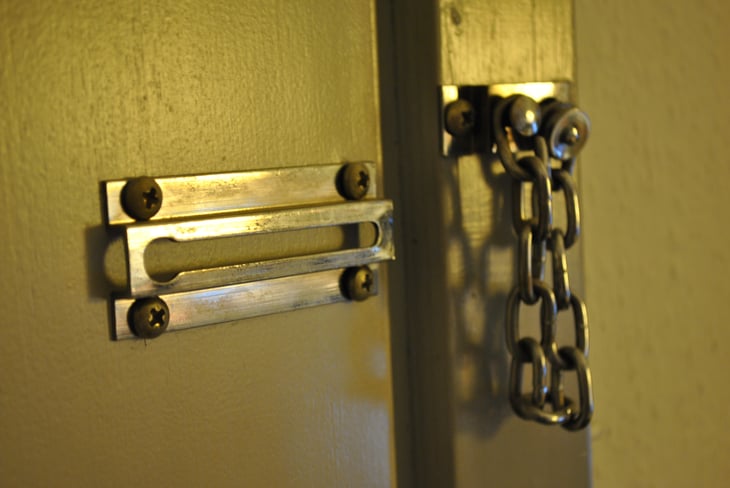With over 50 years of mental health recovery, I was flourishing. In my mid-fifties, I had my first full time job in years. I was working using knowledge and experiences from academic training and my personal recovery. I felt secure in my ability to overcome life challenges. I was proud of the effort I invested in my recovery and my work with a group of knowledgeable and passionate folks helping others overcome the challenges of homelessness, mental illness, trauma, and substance abuse.

Security. This is something I’ve been thinking a lot about recently. I grew up in a home marked by addiction, dysfunction, and for a period of time, poverty. While I knew my parents loved me, my father’s alcoholism set the tone for much of my childhood. As I got older, left home, and engaged in my own much healthier relationships, I thought I had escaped unscathed. In many ways, my sibling took away some of the more common traits of being raised by an alcoholic parent, but I didn’t seem to carry these with me.
05/11/16 03:39 PM | Laura Winn | Families, Poverty, Homelessness
Read More
When I go to a shelter, I don’t get any sleep. Sometimes it's because people wake up at 4:30 am and scream at the top of their lungs. Sometimes it’s because people are up watching TV and walking around.
But mostly, it's because the shelter is not a safe place. The first time I went to a shelter, I was 18 years old. I thought my life was over, and that I would have no social life. As a gay male, I was immediately harassed. I went to sleep every night just wishing that it would be over and wondering why I didn’t have my own place or at least some privacy.
04/7/16 11:47 AM | M | Youth, Homelessness, Resiliency
Read More
“I SEE YOU BUT DO YOU SEE ME?”
That’s the sign I used to fly when I was homeless.
It served a double meaning for me. One meaning was to get the attention of anyone who just walked past without even looking at me or acknowledging me – like I was a piece of trash. You could see people thinking that every homeless person is the same, thinking that we all have the same story, that we all wind up on the street for the same reason. They couldn’t be more wrong.
03/29/16 01:45 PM | Max | Youth, Homelessness, Resiliency
Read More






